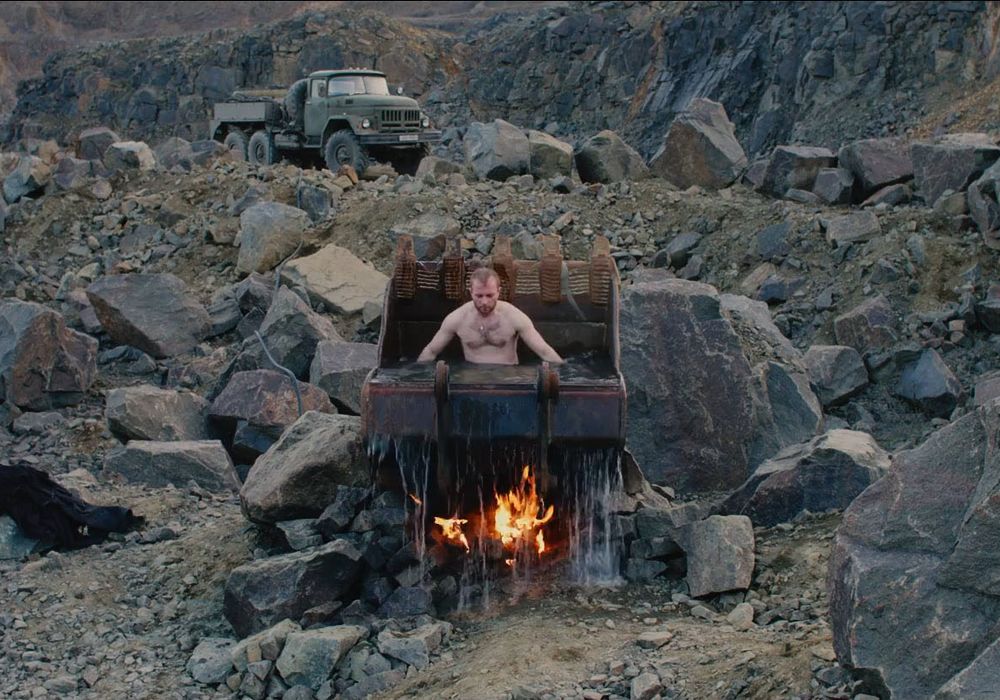The year is 2025. It’s been a full 12 months since Ukraine finally prevailed in its long-standing war with domineering neighbours Russia, but while the outcome might ostensibly have been a victory, the country is in ruins. Economically and ecologically ravaged, those left behind after the devastation struggle to pick up the pieces of their traumatised lives.
Our window into this distant (but all too credible) dystopia is Sergiy (Andriy Rymaruk), a soldier suffering from PTSD who has lost his family, home and sense of purpose to the war. When we first meet him, he and another shell-shocked comrade are firing bullets with impressive precision but increasingly reckless abandon into human-shaped shooting range targets. Not long after, that same acquaintance will succumb to the gaping chasm of his own disillusionment and in doing so, accelerate the shutdown of the ironworks where he and Sergiy eke out a miserable living. Rudderless, our protagonist must find a new path.
The desolation is relentless. Vasyanovych, who wrote, co-produced and directed the piece, also helms the camera and his cinematography is as austere as the landscapes and lives it depicts. The vast majority of scenes are static shots filmed from distance, placing the viewer in the rule of impartial and almost clinical observer. That’s especially marked in various scenes of human exhumation and post-mortem, as skeletal remains are picked over with unemotional professionalism. The palette of the film is predominantly ashen, cementing the theme, which makes the sudden bursts of colour (such as the aforementioned suicide and the discharge of molten waste into a quarry) all the more impactive for their sparsity.
The narrative is equally Spartan. Scenes exist almost in isolation, each serving to further underline the far-reaching wreckage of the war effort. The long takes, minimal dialogue and complete absence of a soundtrack (save for the crunching of gears and the industrial clanging of machinery) mean that the film may be a little slow-paced for some, but those with the patience to stick with it are rewarded with an eye-opening insight into the full fallout of war.
And despite this largely negative outlook, there are shoots of optimism among all the drudgery. On more than one occasion, Sergiy comes to the rescue of others in need, demonstrating that while man may have an innate capacity to harm, the impulse to help is equally as prevalent. His altruism is rewarded, as well; one of his rescuees offers him gainful employment overseas, while another gives him a fledgling direction to his shattered life – as well as the suggestion of a possible happiness that seems almost unthinkable given his circumstances.
As such, Atlantis can be interpreted as both a bleak but life-affirming reflection on the dichotomy of human nature and a warning shot of the implications of continued embroilment in a war without any tangible end. Either way, it’s a powerful and beautifully shot portrayal of how conflict can only ever end in defeat, even for the victorious.
